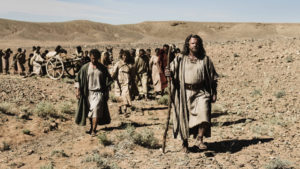[Greek] παροικέω (paroikeō), [Latin] non cognoscere: to dwell (oikeo) beside (para-), be a sojourner, reside as a foreigner, to settle; Lk. 24:18, Heb. 11:9

Background Information:
Greek Hellenism: This term means to dwell beside, to be a resident alien, to live near, and to be a foreigner. Isocrates’ Panegyricus 4.162 states “For since the barbarians are unequal to small divisions of the Hellenes, it is not hard to foresee what would be their plight if they should be forced into a war against our united forces.” Xenophon’s Ways and Means 1.5 states “Many as are the states near to her by land and sea, into none of them does even a thin vein of silver ore extend.”
Old Testament: The Old Testament discusses the ideas of being a refugee and also abiding and dwelling on the land. Although these may appear to be contrasting ideas, these concepts are related in terms of our relationship with God. In a sense, life on earth becomes a sojourning with God. The final destination will be dwelling and abiding in the heavenly Jerusalem.
New Testament: This term means to sojourn and to visit. On the road to Emmaus, Cleopas sees a wandering traveler who in fact was Jesus. Cleopas ask this visitor if he had knew of the things that had taken place in Jerusalem. Abraham sojourned in the promised land in a foreign country.
Scripture:
“One of them names Cleopas, said to Him in reply, ‘Are you the only visitor to Jerusalem who does not know of the things that have taken place there in these days?’” Lk. 24:18
Cleopas and his fellow traveler are lost and downcast sojourners on the road to Emmaus. They also think this stranger is a traveler.
“For here we have no lasting city, but we seek the one that is to come.” Heb. 13:14
The early Christians were also sojourners. The New Testament Church, in its growth and spread to other parts of the world, often persecuted, become strangers and travelers, in alien lands.
The Martyrdom of St. Polycarp (155-157 AD) : “The Church of God which sojourns in Smyrna, to the Church of God which sojourns in Philomelium, and to all the dioceses of the holy and Catholic Church in every place.”
Conclusion:
Parochial, parish, recognition
From this comes the words parochial and related parish. A parish is essentially a congregation of Christians. In a sense all Christian are sojourners who are temporarily abiding in parishes, yet continuing to reach the heavenly Jerusalem. Still to this today, many Christian and non-Christian face struggles on their journey through life.

Refugees from Syria
